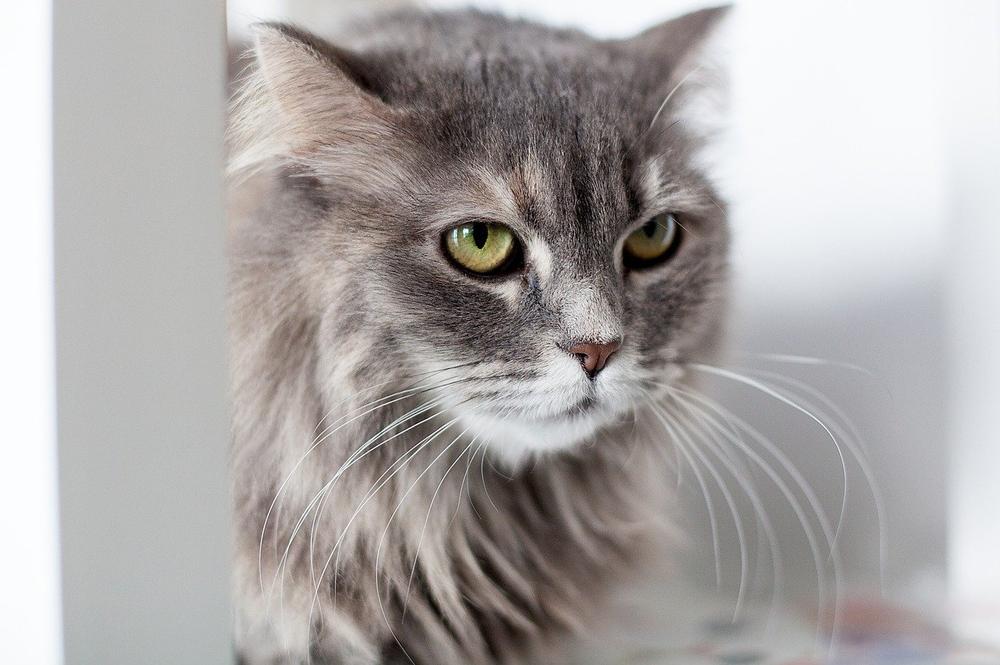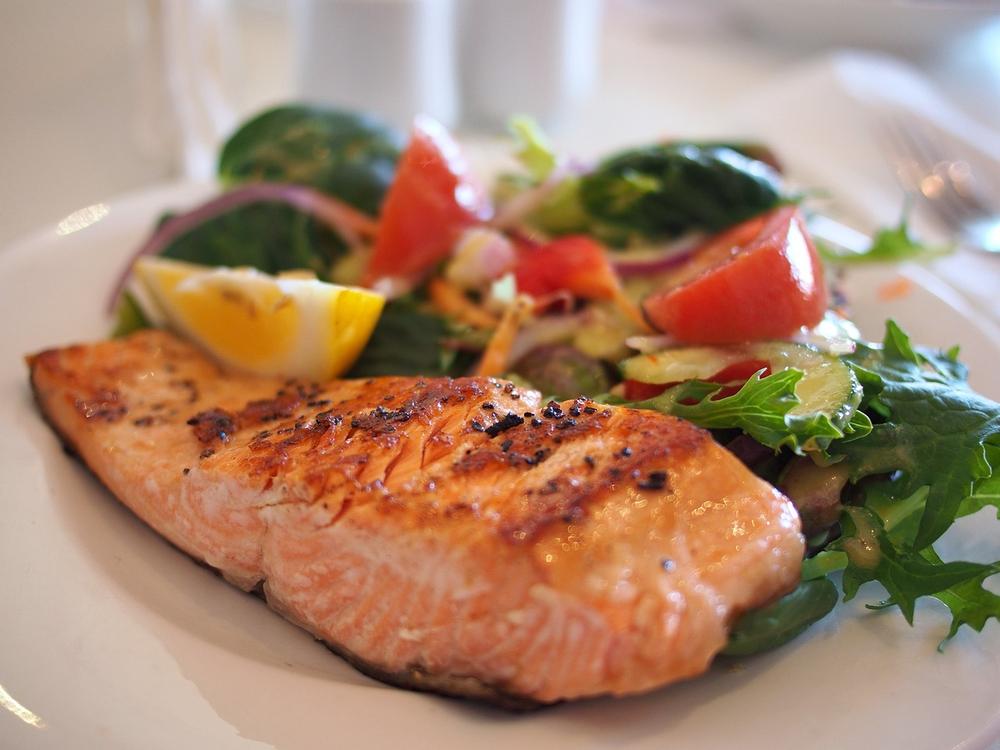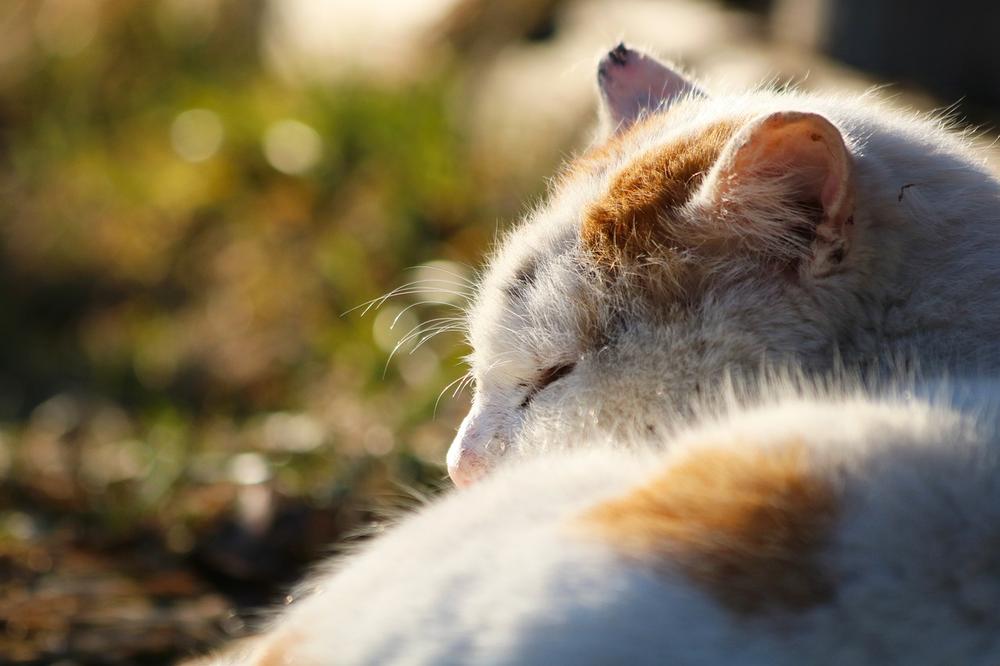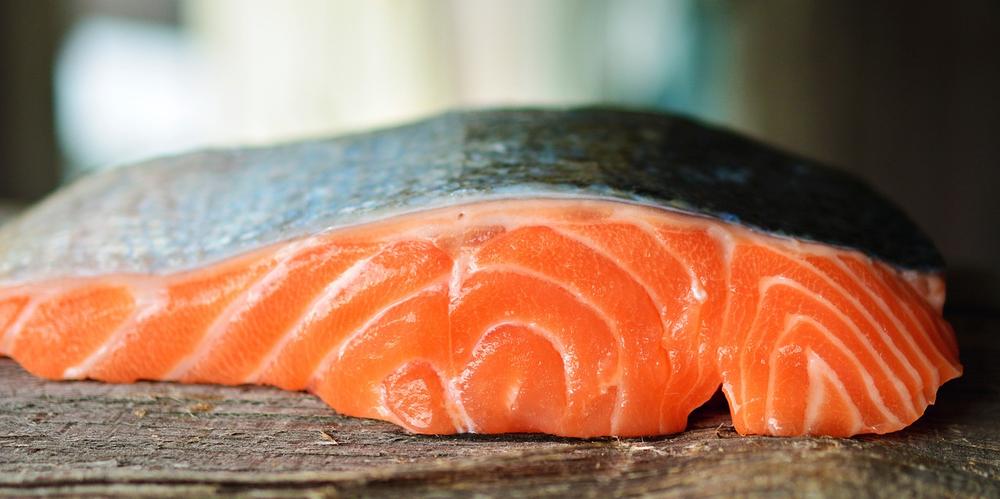Can Cats Eat Salmon? (Raw vs Smoked vs Canned Comparison)

Admit it:
You're worried sick about whether your feline friend can chow down on some salmon. 🐟
Picture this nightmare scenario:
One moment they're purring contentedly, and the next, they're writhing in agony.
It's a horror show, I know.
But the consequences of not solving this mystery will leave you tossing and turning all night.
Stop fretting, because in this I Care for Cats guide, I'll reveal the truth.
Let's save your sanity together!
Is Salmon Good for Cats?
Yes, salmon is beneficial for cats as it provides essential nutrients like protein, niacin, potassium, selenium, vitamin B6, vitamin B12, omega-3 fatty acids, taurine, and DHA. However, it should be given in moderation and without any added seasonings or oils.
Can your cat safely indulge in the deliciousness of salmon?
Let's dive right into it and find out.
Incorporating essential nutrients from different sources is key for a balanced diet for your feline friend. While salmon does offer some nutritional benefits, it shouldn't be relied upon solely.
Cats require a complete balanced diet that includes fats, carbohydrates, protein, and micronutrients from various sources. After all, variety is the spice of life!
Now, let's talk about what salmon brings to the table.
It contains animal protein, niacin, potassium, selenium, vitamin B6, and vitamin B12.
Not too shabby, huh?
But wait, there's more.
Salmon also boasts omega-3 fatty acids, which support joint health, reduce inflammation, and promote heart health.
Your cat will be purring with satisfaction.
And that's not all – salmon also contains taurine and DHA, which are like superstars for vision and eye development.
Say hello to a bright-eyed beauty.
If your cat struggles with skin issues or hairballs, salmon's got their back.

Its fatty acids can soothe skin problems and help with those pesky hairballs.
It's worth noting that high-quality oily fish like salmon have higher nutritional value compared to low-quality fish found in some commercial cat foods. Upgrade your whiskered wonder's diet with this tasty treat.
But hold on, there's a catch.
If your cat has specific conditions, be cautious when serving salmon.
Remove the head, fins, and bones, and skip the butter, oil, salt, or seasonings.
Keep it pure and simple.
When it comes to cooking methods, you have options:
Roasting, grilling, or poaching.
Just remember to exercise moderation and portion control. We don't want our furry friends carrying around extra pounds.
And don't forget, treats like salmon should only make up a small part of your cat's daily calorie intake – no more than 10 percent. Let's keep those waistlines in check.
Now, let's address the concern about kidney problems due to salmon's high potassium and phosphorus content.
While it's unlikely to affect most cats, it's always key to ensure your salmon is safe for consumption.
So there you have it – the lowdown on whether cats can safely consume salmon.
With proper precautions and moderation, your feline friend can enjoy this delicious treat and reap its nutritional benefits.
Main points I'll expand upon further down this article:
- Remove the head, tail, and bones from raw salmon to prevent choking hazards.
- Raw salmon can pose risks due to potential bacteria contamination.
- Avoid feeding raw salmon to prevent stomach upset and potential health issues.
- Cook salmon thoroughly to eliminate risks of bacteria.
- Smoked salmon should be avoided due to additives and high salt content.
- Smoked salmon can be made safer if prepared at home with controlled ingredients.
- Canned salmon meant for humans may contain additives and high sodium levels.
- Opt for pre-packaged commercial cat foods with salmon for safe and nutritious options.
- Fresh cuts of fish without salt or preservatives are a healthier choice.
- Consider other safe seafood options like cod, tilapia, shrimp, and seaweed.
But, before you serve up a plate of delicious salmon for your feline friend, there are some important precautions to consider!
Can Cats Eat Raw Salmon?
When you feed cats raw salmon, there are precautions you should take. Here's what you need to know:
- First, make sure to remove the head, tail, and bones from the salmon. This will prevent any choking hazards or harm to their digestive tract.
- While cats are somewhat resistant to Salmon Poisoning Disease, there is still a risk of harmful bacteria in raw salmon. It's best if you avoid giving them raw salmon altogether.
- Instead, opt for cooked salmon without any garlic, spices, or excessive oil. Cooking the fish eliminates the dangers associated with raw food.
- Thiaminase, which is found in raw fish, destroys thiamine, a crucial nutrient for cats. By choosing cooked salmon, you can ensure they get all the essential nutrients they need.
- Furthermore, raw fish can become a breeding ground for bacteria, which can cause food poisoning in both cats and humans.
Ensure the salmon is cooked completely and remove any possible hazards to maintain your pet's health and safety. Avoid risking their well-being.
Now, you might be wondering about other types of fish that cats can consume.

What about tuna?
Can cats safely eat this popular seafood?
Let's find out in the next section.
Trust me, you won't want to miss it!
Can Cats Eat Smoked Salmon?
While cooked salmon is generally safe for cats, it's best to avoid smoked salmon due to potential additives and high salt content. If making it at home, use caution and offer small amounts occasionally to ensure your cat's well-being.
Is smoked salmon safe for cats to consume?
Well, not really.
There are a few reasons why it's not recommended for our feline friends.
Let me explain.
The commercially prepared smoked salmon can be troubling because it may have additives that aren't safe for cats.
That's a big no-no for your cat's delicate tummy.
But wait, there's more...

The high salt and spices used in smoking the salmon could also cause health issues for cats.
Too much salt is bad for them, so it's something to be aware of.
However, if you're making smoked salmon at home, things might be different.
You have control over the ingredients, which makes it safer for cats.
But don't get too excited. Even though cooked salmon is generally okay for cats, smoked salmon should still be given with caution.
It's best to only offer small amounts occasionally due to its high salt content.
To sum up, it's better to play it safe and avoid feeding any kind of smoked salmon to your beloved cats.
Well, now that we've covered smoked salmon, you might be wondering about canned salmon.
Let me tell you, there are some important considerations to keep in mind when it comes to feeding it to your feline companion!
Can Cats Eat Canned Salmon?
Feeding cats canned salmon?

Be careful, here's the deal:
- Look out for bad stuff: Canned salmon made for people might have additives, spices, and too much salt that can poison cats. So, check the label before feeding your furry friend.
- High sodium levels: Canned salmon could be packed with extreme amounts of salt, which isn't good for cats. This can lead to serious health issues like high blood pressure or kidney problems.
- Say no to canned tuna too: Just like canned salmon, tuna in a can has lots of sodium and preservatives. It's better to avoid it when planning your cat's grub.
- Choose cat food with salmon: Instead of taking chances with canned salmon, go for pre-packaged cat foods with salmon. These are designed to give all the necessary nutrients without the harmful extras.
- Be careful even with cat-specific canned salmon: Some brands may still pack excessive salt and oils leading to calorie overload. Keep an eye on labels for a healthier option for your furball.
In conclusion, because of the potential harm from sodium and other extras, it's generally not recommended to feed canned salmon to cats.
Stick to safer choices like fresh fish cuts without salt or preservatives. 😺
Feasibility of Cats Consuming Salmon Skin
Leaving the skin on salmon is good for your cat.
It contains omega-3 fatty acids that are beneficial to their health.

If your cat can handle it, don't remove the skin.
These fatty acids help support their overall well-being.
They're found in the skin of the salmon. So keep it on if your furball is okay with it!
Other Possible Problems With Salmon
Let's talk about problems with salmon for cats.
You need to know that fish allergies are pretty common in cats. They can cause digestion issues, skin problems, or even breathing difficulties.
So, you have to watch out for any negative reactions if you feed your cat salmon.
I know what you're thinking - "Cats allergic to fish?
That's like humans allergic to oxygen!" But believe it or not, it happens often.
To make sure seafood is safe for your furry friend, choose bone-free fish without any harmful stuff.
Good options are cod, tilapia, shrimp, prawns, octopus, squid, and seaweed.
These choices should be easier on their stomachs.
But be warned, commercial cat foods can have their own risks.
Some may contain too many minerals, preservatives that affect liver, and even salmon exposed to pollutants, toxins, and antibiotics.
Yikes!
Lastly, cooked tuna is generally okay in moderation because raw fish can have health effects.
But don't make it a regular part of your cat's diet because of high mercury levels.
Remember that when considering fish for your feline friend.
Now that we've discussed the potential problems with salmon for cats, you may be wondering about other foods that can be risky for our feline friends.
If you're curious about whether it's safe for your beloved pet to consume pistachios and want to understand the potential risks and benefits, I highly recommend checking out Can Cats Eat Pistachios.
In this informative blog post, you'll find expert insights and guidelines to help you make informed decisions for your cat's health.
It's always important to ensure that we're providing the best diet for our furry companions, and I trust that this resource will help address your concerns.
What About Mercury?
| Mercury Content | Health Benefits | Other Considerations | |
|---|---|---|---|
| Salmon | Relatively low | High in Omega-3 | Contains mercury but at relatively low levels compared to predatory fish |
| Predatory Fish | Higher levels | - | Can have higher levels of mercury and pose a risk |
| Anchovies | Lower mercury | - | A better choice due to their lower mercury and heavy metal content |
Mercury can be found in certain types of fish, including salmon.
But don't worry, it's not a dealbreaker.
Salmon actually has lower levels of mercury compared to other predatory fish. This means that you can still consider it as a healthy option for your cat without any major concerns.
If the thought of potential mercury exposure is still nagging at you, try considering anchovies instead.
These little guys have lower levels of mercury and heavy metals.
Not only do they bring a flavorful kick to the table, but they also keep your cat safe from harmful substances. Remember, while salmon may contain mercury, you should recognize its advantages over other predatory fish.
The key here is variety!
Mix up your cat's diet by incorporating different protein sources like salmon or anchovies.
Both you and your cat deserve a diverse menu.
So, there's really no need to completely write off salmon just because of its tiny companion, mercury. Just make sure that you serve it in moderation, my friend.
And that wraps up today's article.
You made it to the end of my blog post, so I wanted to ask: did you enjoy reading it? I really put in a ton of effort to write helpful and detailed posts. It takes me quite a bit of time (in a positive way) to create them, so it would mean a lot to me if you could click on any of the social sharing icons to share this post with others. Thank you so much!
Talk soon,
-Sarah Davis